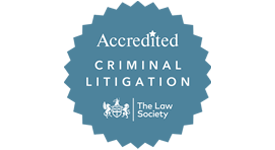Anti-terrorism law has grown exponentially over the past 20 years. Faradays Solicitors is at the forefront of criminal defence for those facing accusations of terrorism or financing terrorist groups. We act for suspects accused of all types of terrorist activity, from those accused of being involved in the Real IRA, to ISIS and white-supremacist organisations.
There are many pieces of legislation, regulations, and orders which provide the police, intelligence services, and National Crime Agency with powers to investigate suspicions of terrorist activity and/or financing.
At Faradays Solicitors, our criminal defence lawyers have an in-depth understanding of terrorism law. We have also acted successfully for clients who are facing extradition for crimes to States which apply the death penalty or condone torture. This includes one case concerning an individual where we stayed his extradition to Ghana on the grounds the extradition would be incompatible with his rights under art. 3 of the European Convention on Human Rights.
What is terrorism?
The Terrorism Act 2000 defines terrorism as an act designed to:
“influence the government or an international governmental organisation or to intimidate the public or a section of the public, and the use or threat is made for the purpose of advancing a political, religious, racial or ideological cause”.
What powers do the police and government agencies have to investigate terrorism?
The Terrorism Act 2000 (the Act) confers wide powers on authorities to investigate terrorism, and this has proved very controversial. Our team understands the scope and the limits of the powers conferred by the Terrorism Act 2000 and will quickly identify if an authority has acted improperly in your case.
Under section 43 of the Act, police have the power to stop and search a person if they have a reasonable belief to suspect you are involved in terrorist activities. In 2012, the rules were tightened, and the police can only carry out searches in designated places where they have reasonable grounds to believe an act of terrorism will take place.
Anyone arrested under the Act can be held without charge for up to 14 days.
Schedule 7 of the Terrorism Act 2000 gives the police the power to stop, search, and hold individuals at ports, airports, and international railway stations.
Can I be arrested on suspicion of planning a terrorist attack?
Yes, section 5 of the Terrorism Act 2006 provides a specific offence to prepare (or help others prepare) for an act of terrorism. However, if you are accused of committing a terrorist act, you will be charged with other offences such as murder or grievous bodily harm – there is no specific offence for the carrying out of a terrorist attack.
Failing to inform authorities if you suspect someone you know is planning a terrorist attack is also an offence, one which carries a five-year prison sentence. In addition, collecting information likely to be helpful to a person planning to carry out an attack is an offence, along with distributing publications aimed at encouraging terrorist activity.
Our criminal defence solicitors can immediately assist you if you have been detained on suspicion of planning a terrorist attack. We can provide police station representation, ensuring you receive legal advice immediately.
What is TPims?
TPim stands for Terrorism Prevention and Investigation Measures. It is a form of house arrest and is used where a person is deemed a threat to public safety, but they cannot be charged with a crime or deported (if they are a foreign national).
TPims allows for people to have electronic tags attached and may demand they report to the police at certain times and/or surrender their passport.
Given that these laws have the power to temporarily restrict a person’s freedom without a fair trial, they are used sparingly, and anyone who is made subject to TPims must consult a terrorism solicitor immediately.
What are the penalties for terrorism?
If you are convicted of terrorist-related activities, the penalties are extremely serious. Not only in terms of custodial sentences, but the impact on the reputation of you and your family and your ability to live and travel both in the UK and other countries.
For those accused of murder following a terrorist incident, the sentence is life imprisonment if convicted. The maximum sentence for helping someone prepare to carry out a terrorist offence is also life imprisonment. Collecting or recording information that will be useful to a person planning a terrorist attack carries a maximum prison sentence of 10 years.
If you have been accused of terrorism offences, you must take it seriously, even if you believe there has been a big mistake, and an explanation given to authorities will “sort the matter out”. Terrorism is an extremely grave offence to be accused of, and therefore you must seek legal advice and representation immediately.
Our terrorism solicitors will not only advise you to ensure you say nothing that can be used as evidence against you, but we will also carefully examine the procedure undertaken by authorities during their investigation. If authorities did not obey the law when conducting their investigations and/or arresting you, we can use this information to construct a strong defence.
To contact our terrorism law solicitors or get emergency police station representation, please phone our office on 0207 281 1001. You can also email us at enquiries@faradayssolicitors.co.uk




